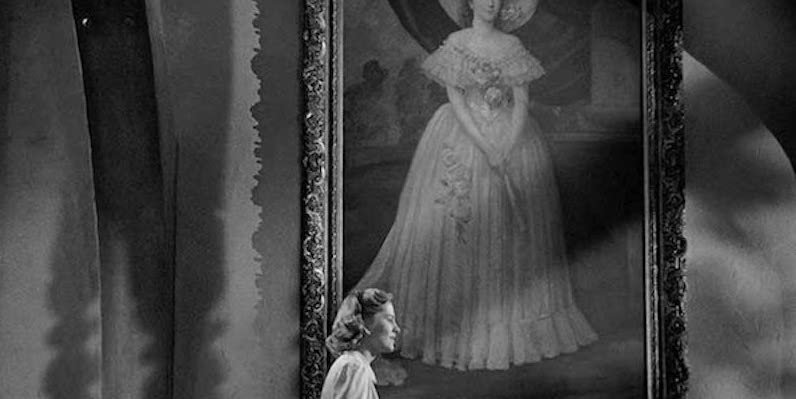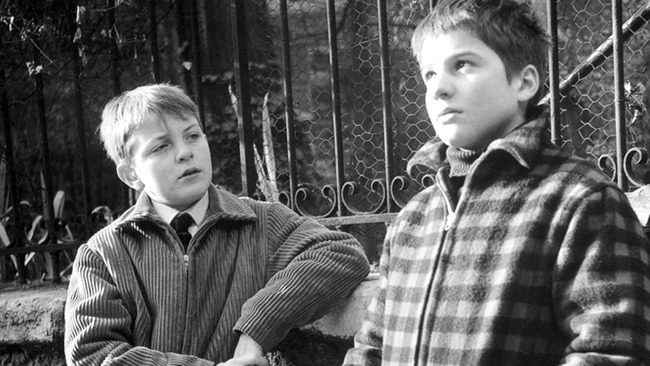At a recent book event for my new novel, I Killed Zoe Spanos, I was asked what had inspired my YA take on Daphne du Maurier’s classic romantic thriller. “I’ve always loved Rebecca,” I said. I went on to explain that I first read the classic when I was perhaps too young to appreciate the novel’s nuance, but that was before Young Adult was a publishing category in any real sense. The teen section of my local bookstore was well-stocked with Christopher Pike and RL Stine, but not much else. I sought out adult-market books with young, often naïve protagonists. The second Mrs. de Winter (or simply “I” as the anonymous protagonist is often called by Rebecca-ites) appealed to me even as a pre-teen. She was inexperienced, shy, unsure—yet madly, passionately in love. She was a young woman I aspired to grow up to be.
After the discussion, a friend and fellow du Maurier fan pulled me aside and laughed, “What you should have said was, ‘I never loved Rebecca.’” Very clever. I doubted many in the audience would have gotten the in-joke, a paraphrase from the novel’s final act, but with the release of the new Netflix adaptation, pulling Rebecca again into our collective cultural consciousness (if it ever left) I’m excited for a new generation of fans to join us die-hards on the inside.
The last time I re-read Rebecca, I listened on audio because my Avon paperback copy—you know the one: bright red cover, elegant gold font—had become so yellowed and worn over the years, it was barely legible. I could also swear the print had shrunk. Weird. I’ve lost track of how many times I’ve read Daphne du Maurier’s Gothic thriller. Rebecca was a go-to read for me from an early age. I was immediately captivated by the creepy gothic estate Manderley, the narrator with such a severe case of imposter syndrome that she won’t even reveal her first name to the reader, the conniving Mrs. Danvers, and the quaint seaside village filled with deadly secrets. The story was immersive, enthralling. I wanted to lose myself in it. Rebecca was, as the kids are saying these days, a whole mood.
What’s changed for me over the years and through many reads is my relationship to the novel’s central characters. As an awkward teen, I found “I” to be imminently relatable—an outsider looking in, then thrust into the haunted heart of Manderley, all passion and no polish. She was a mirror character for me, albeit in much more romantic and glamorous surroundings. As an adult, I’ve grown to look askance at the narrator’s unflagging commitment to Maxim—even in light of, and in fact because of, his darkest secrets. The devotion which once seemed so profoundly romantic to a twelve-year-old smacked of stomach-twisting “stand by your man” posturing to my adult sensibilities.
Looking back, the notes I took during my latest Rebecca re-read are filled with vexation with the second Mrs. de Winter. The narrator’s low self-esteem is grating. Her inability to assert herself or stand up for herself is infuriating. The only thing she cares about is pleasing her man—what the heck? Perhaps I am being too hard on “I,” though. In the end, I like to imagine du Maurier intended us to read her narrator with compassion—the reader, like “I,” is the outsider invited through Manderley’s haunted doors—balanced with a healthy degree of skepticism and frustration. She is a deeply flawed protagonist, which is of course what makes her so endlessly fascinating.
The narrator is not the only character who revealed herself to me in a different light years after I first discovered Rebecca. The queer subtext in Mrs. Danvers’s deep and steadfast love for the dead Rebecca was entirely lost on me at a young age, but now it stands out as one of the novel’s most compelling relationship dynamics—far sexier than the strange and stayed relationship between Maxim and his second wife.
And then there is Rebecca herself. The titular character is portrayed as a saint by all who knew her—especially the intimately devoted Mrs. Danvers—until she is revealed in death to have been anything but. Rebecca can be read as a whip-smart woman who did what she needed to do to get what she wanted, but at least in 1938, it’s my suspicion she was mostly seen as a vindictive, manipulative adulteress, and that’s the reputation she’s retained through the years. Twelve-year-old me was primed to lap up Maxim’s vicious and demeaning portrayal of his dead wife, to entertain the possibility that she was the novel’s true villain, standing in the way of Maxim’s happiness and, even in death, coming between Maxim and “I.” Now, that reading feels both childish and anti-feminist; it stemmed, I think, from my pull toward “I”: I was inclined to see the story through her lens without questioning her viewpoint, to take her side in the same steadfast way she took Maxim’s.
Now, I find myself very much on the side of Mrs. Danvers: Rebecca is the story’s unsung hero, brilliant and uncompromising. Rebecca, while she lived, was fabulous.
***






















